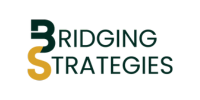
Future-Proof with Skills-First Strategies
In today’s fast-paced world, traditional talent management is no longer enough. Relying mainly on education and experience as the main criteria for employment is no longer enough. As markets, technologies, and industries evolve rapidly, leaders must ensure their workforce can adapt to constant change. The real question is: How can your organization stay ahead of the curve?
The answer lies in shifting from position-based to skills-focused management. While positions are important, it’s the skills that truly keep your business agile. Without the right skills, teams will struggle, and your company risks falling behind in a competitive marketplace.
Skills: The Key to Future-Proofing Your Business
Recognizing the importance of skills is only the first step. To remain competitive, leaders must identify the essential skills their organization needs and find ways to nurture them within a diverse workforce.
A skills-focused strategy offers several key benefits including the ability to:
· Adapt quickly to market changes and address skill gaps efficiently.
· Foster a more engaged workforce that thrives on innovation.
· Leverage diverse talents to drive organization growth and performance.
Building a Skills-Focused Strategy
Here are seven key foundational steps to help your organization thrive in a skills-driven world:
1. Skill Discovery: Assess your current capabilities and forecast future needs to maintain a competitive edge.
2. Learning Momentum: Cultivate a culture of continuous learning that fuels innovation and business growth.
3. Competency-Driven Hiring: Prioritize hiring based on skills rather than traditional qualifications, expanding your talent pool and enhancing performance.
4. Dynamic Talent Movement: Empower employees to move fluidly between positions based on their skills, increasing engagement and agility.
5. Future-Ready Planning: Leverage data to forecast and prepare for evolving skill demands before they arise.
6. Skill Application: Ensure that the skills developed are actively used, maximizing impact across the organization.
7. Continuous Feedback Loop: Implement regular reviews and feedback systems to keep skill development aligned with your organization’s evolving goals.
Leading the Way Forward
Shifting to a skills-focused strategy takes thoughtful planning, collaboration and leadership alignment. HR plays a pivotal role in facilitating this transformation by guiding skills assessments, integrating continuous learning into corporate culture, and using data analysis to forecast future needs. By empowering teams to be more agile and responsive, HR helps build a workforce that is not only prepared for today’s
challenges but also equipped for tomorrow’s demands. With HR’s support, organizations that embrace this shift will stay competitive, innovative, and ready for whatever comes next.



No Comments